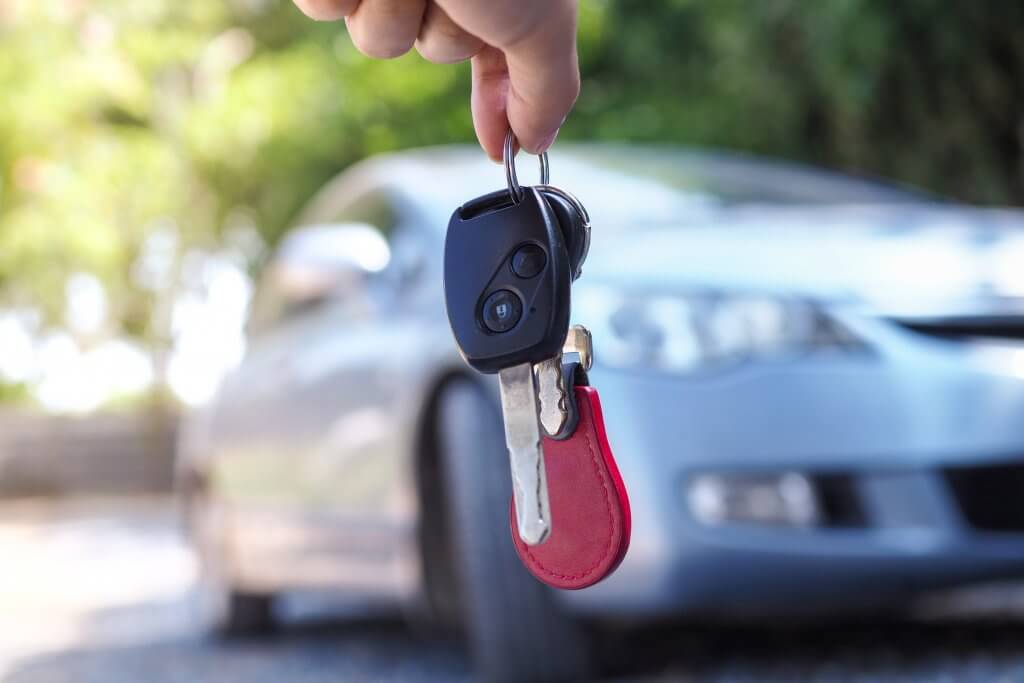
Are you in the market for a used car in Phoenix, Arizona? Making the decision to purchase a pre-owned vehicle can be both exciting and nerve-wracking. While there are numerous benefits to buying used, such as cost savings and a wider selection, it's essential to approach the process with caution to avoid common pitfalls.
At Overstock Vehicles, we understand the importance of making an informed decision when purchasing a used car. That's why we've put together this comprehensive guide on the "5 Things to Avoid When Buying a Used Car." Whether you're a first-time buyer or a seasoned veteran, these tips will help you navigate the car-buying process with confidence.
So, if you're ready to embark on your journey to find the perfect used car in Phoenix, Arizona, read on to discover the key factors to consider and pitfalls to avoid. And remember, if you have any questions or need assistance, don't hesitate to visit or contact us at Overstock Vehicles. Our team of experts is here to help you find the right vehicle at the right price.

1. Not Researching the Vehicle History
- Explanation of why vehicle history is crucial:
When purchasing a used car, one of the most critical steps you can take is to research the vehicle's history thoroughly. The history of a car can reveal invaluable information about its past, including any accidents, previous owners, service records, and potential issues that may affect its performance or value.
Understanding a vehicle's history allows you to make an informed decision and avoid costly surprises down the road. For example, a car with a history of accidents may have hidden structural damage or ongoing mechanical issues that could lead to expensive repairs in the future. By uncovering these details upfront, you can avoid investing in a car that may not meet your needs or expectations.
- Tips for accessing vehicle history reports:
Accessing a vehicle history report is easier than ever thanks to online services that provide comprehensive reports based on a car's Vehicle Identification Number (VIN). These reports compile information from various sources, including government databases, insurance companies, and auto auctions, to provide a detailed overview of a vehicle's past.
When researching a used car, be sure to obtain a vehicle history report from a reputable provider. Look for services that offer comprehensive reports with detailed information about the car's ownership history, title status, accident history, odometer readings, and more.
Additionally, consider using multiple sources to cross-reference information and ensure its accuracy. While vehicle history reports are generally reliable, errors and omissions can occur, so it's essential to verify the information whenever possible.
- Importance of VIN check in Phoenix, Arizona:
In Phoenix, Arizona, conducting a VIN check is particularly crucial due to the region's climate and terrain. The desert environment can take a toll on vehicles, leading to issues such as sun damage, overheating, and corrosion. Additionally, Arizona's roads, including highways and off-road trails, can contribute to wear and tear on a car's suspension, tires, and other components.
By performing a VIN check specific to Phoenix, Arizona, you can uncover any issues that may be common in the region, such as heat-related damage or off-road accidents. This information can help you make an informed decision and ensure that the used car you're considering is suitable for the local conditions.

2. Skipping the Pre-Purchase Inspection
- Stress on the significance of a pre-purchase inspection:
One of the biggest mistakes you can make when buying a used car is skipping the pre-purchase inspection. While it may seem tempting to forgo this step to save time or money, a pre-purchase inspection is crucial for identifying potential issues and ensuring the vehicle is in good condition before making a purchase.
A pre-purchase inspection provides you with an independent evaluation of the car's mechanical and structural integrity by a qualified mechanic. This thorough examination can uncover hidden problems that may not be apparent during a test drive or visual inspection, giving you peace of mind and potentially saving you from expensive repairs down the line.
By investing in a pre-purchase inspection, you gain valuable insight into the overall condition of the vehicle and any necessary repairs or maintenance it may require. This information empowers you to make an informed decision and negotiate with confidence, knowing exactly what you're getting into before finalizing the purchase.
- Guidance on finding reputable mechanics in Phoenix, Arizona:
Finding a reputable mechanic in Phoenix, Arizona, is essential for ensuring a thorough and accurate pre-purchase inspection. Start by asking for recommendations from friends, family, or colleagues who have had positive experiences with local mechanics. Online reviews and ratings can also help you identify reputable auto repair shops in your area.
Once you've compiled a list of potential mechanics, take the time to research each one further. Look for certifications, such as Automotive Service Excellence (ASE) or memberships in professional organizations like the Automotive Service Association (ASA), which demonstrate a commitment to excellence and ongoing training.
When contacting mechanics, inquire about their experience with pre-purchase inspections and their familiarity with the make and model of the car you're considering. A knowledgeable and experienced mechanic will be able to conduct a thorough inspection and provide valuable insights into the vehicle's condition.
- Checklist of items to inspect during the examination:
During the pre-purchase inspection, the mechanic will conduct a comprehensive evaluation of the vehicle's mechanical, electrical, and structural components. While the specific checklist may vary depending on the make and model of the car, common items to inspect include:
- Engine: Check for signs of leaks, worn belts or hoses, and unusual noises or vibrations.
- Transmission: Test the transmission for smooth shifting and signs of wear or fluid leaks.
- Suspension and Steering: Inspect the suspension components for signs of damage or wear, and test the steering for responsiveness and alignment.
- Brakes: Check the brake pads, rotors, and brake fluid levels for signs of wear or deterioration.
- Tires: Inspect the tires for tread wear, uneven wear patterns, and signs of damage or aging.
- Frame and Underbody: Examine the frame and underbody for signs of rust, corrosion, or previous repairs.
- Electrical Systems: Test the battery, alternator, and electrical components for proper functioning.
- Interior and Exterior: Check the interior and exterior for signs of damage, wear, or mismatched paint indicating previous repairs or accidents.

3. Ignoring the Fine Print of the Sales Agreement
- Importance of reading and understanding the sales agreement:
One of the most critical aspects of buying a used car is thoroughly reviewing and understanding the sales agreement. Ignoring the fine print of the sales agreement can lead to misunderstandings, disputes, and financial repercussions down the line. Therefore, it's essential to take the time to carefully read and comprehend all terms and conditions before signing on the dotted line.
The sales agreement outlines the terms of the purchase, including the price, payment schedule, warranties, and any additional fees or charges. By understanding the terms of the agreement, you can ensure that you're getting a fair deal and avoid any surprises or hidden costs.
Furthermore, reading the sales agreement allows you to clarify any questions or concerns you may have before committing to the purchase. If there are terms you don't understand or provisions you're uncomfortable with, don't hesitate to ask the dealer for clarification or request modifications to the agreement.
- Common pitfalls found in sales contracts:
When reviewing the sales agreement, be on the lookout for common pitfalls that may disadvantage you as the buyer. Some of these pitfalls include:
- Hidden Fees: Watch out for hidden fees or charges buried in the fine print, such as documentation fees, processing fees, or dealer add-ons. These fees can significantly increase the total cost of the car and catch you off guard if you're not careful.
- Misleading Terms: Be wary of vague or ambiguous language in the sales agreement that could be interpreted in ways that are unfavorable to you as the buyer. Pay close attention to terms related to warranties, return policies, and financing options to ensure they align with your expectations.
- Unfair Arbitration Clauses: Some sales agreements may include arbitration clauses that limit your ability to pursue legal action in the event of a dispute. These clauses often favor the dealer and may prevent you from seeking recourse through the court system.
- Non-Cancellable Contracts: Avoid signing a sales agreement that is non-cancellable or includes hefty cancellation fees. A non-cancellable contract may leave you stuck with a car you're unhappy with or unable to afford, leading to financial hardship.

4. Overlooking the Test Drive
One of the most crucial steps in the used car buying process is the test drive. Yet, it's often overlooked or rushed by buyers eager to seal the deal. However, the test drive is your opportunity to evaluate the car's performance, handling, and overall condition firsthand before making a purchase commitment.
During the test drive, you can assess how the car feels on the road, how it accelerates, brakes, and handles various driving conditions. Additionally, you can listen for any unusual noises or vibrations that may indicate underlying mechanical issues. By experiencing the car in action, you can get a sense of whether it meets your expectations and suits your driving preferences.
Furthermore, the test drive allows you to test out the car's features and amenities to ensure they are in proper working order and meet your needs. From the comfort of the seats to the functionality of the infotainment system, the test drive provides valuable insights into the overall quality and condition of the vehicle.
In essence, the test drive is your chance to ensure that the car is the right fit for you in terms of both performance and comfort. Skipping or rushing through this step could leave you with a car that doesn't meet your expectations or needs, leading to buyer's remorse down the line.
- Tips for conducting an effective test drive:
To make the most of your test drive experience, consider the following tips:
- Schedule Sufficient Time: Allocate ample time for the test drive to thoroughly evaluate the car's performance and features without feeling rushed.
- Bring a Checklist: Create a checklist of items to inspect during the test drive, such as acceleration, braking, steering responsiveness, and functionality of features.
- Test Different Driving Conditions: Drive the car on a variety of roads, including highways, city streets, and uneven surfaces, to assess its performance in different driving conditions.
- Pay Attention to Comfort and Ergonomics: Evaluate the comfort of the seats, visibility, and ease of access to controls and amenities to ensure they meet your preferences.
- Listen for Unusual Noises: Keep your ears open for any unusual noises, such as rattles, squeaks, or grinding sounds, that may indicate mechanical issues.
- Test Special Features: If the car has special features or amenities, such as a sunroof or advanced safety systems, be sure to test them out during the test drive.
- Suggested routes for test driving in Phoenix, Arizona:
When test driving a car in Phoenix, Arizona, consider taking the following routes to evaluate its performance in various driving conditions:
- Highway: Drive the car on the highway to test its acceleration, cruising speed, and stability at higher speeds.
- City Streets: Navigate through urban areas to assess the car's maneuverability, visibility, and responsiveness in stop-and-go traffic.
- Hills and Curves: Seek out routes with hills and curves to evaluate the car's climbing ability, handling around corners, and stability on inclines.
- Rough Roads: Drive on roads with uneven surfaces or potholes to gauge the car's suspension and shock absorption capabilities.
- Parking Lots: Practice parking and maneuvering in tight spaces, such as parking lots or garages, to assess the car's turning radius and ease of parking.

5. A. Overview of the negotiation process:
Negotiating the price of a used car is a crucial step in the buying process, yet many buyers shy away from this aspect or fail to negotiate effectively. Understanding the negotiation process can empower you to secure a fair deal and save money on your purchase.
Negotiation typically begins after you've thoroughly inspected the car, taken it for a test drive, and expressed interest in making a purchase. The dealer will often start by presenting a price, but this initial offer is usually negotiable. Your goal during negotiation is to reach a price that both you and the dealer find acceptable, taking into account factors such as the car's condition, market value, and your budget.
Keep in mind that negotiation is a two-way street, and both parties should be willing to compromise to reach a mutually beneficial agreement. Approach the negotiation process with confidence, but also be prepared to listen to the dealer's perspective and be flexible in your expectations.
- Strategies for negotiating the price effectively:
To negotiate the price of a used car effectively, consider employing the following strategies:
- Research and Preparation: Research the market value of the car you're interested in and come prepared with evidence to support your offer. Knowing the fair market price empowers you to negotiate from a position of strength.
- Set a Budget: Determine the maximum amount you're willing to pay for the car and stick to it. Having a clear budget in mind helps you avoid overspending and provides a framework for negotiation.
- Focus on Total Cost: Instead of solely focusing on the sticker price, consider the total cost of ownership, including taxes, fees, and financing. Negotiate based on the out-the-door price to ensure you're getting the best deal overall.
- Use Leverage: Leverage any factors that may work in your favor during negotiation, such as the car's condition, market demand, or competing offers from other dealerships.
- Be Willing to Walk Away: Don't be afraid to walk away from the negotiation if the dealer is unwilling to meet your terms. Sometimes, the threat of losing a sale can encourage the dealer to reconsider their offer and make concessions.
Call Us Today!
Congratulations! You've now armed yourself with invaluable knowledge about the "5 Things to Avoid When Buying a Used Car." By understanding the importance of researching vehicle history, conducting a pre-purchase inspection, reading the sales agreement, test driving, and negotiating effectively, you're well-equipped to make an informed decision and avoid common pitfalls when purchasing a used car.
Remember, buying a used car is a significant investment, and taking the time to research, inspect, and negotiate can save you time, money, and headaches in the long run. Whether you're a first-time buyer or a seasoned pro, these tips are essential for ensuring a smooth and satisfying car-buying experience.
If you're in the market for a quality used car in Phoenix, Arizona, look no further than Overstock Vehicles. Our wide selection of vehicles, knowledgeable staff, and commitment to customer satisfaction make us the perfect partner for your car-buying journey. Whether you have questions about vehicle history reports, need assistance scheduling a pre-purchase inspection, or want to negotiate a fair price, our team is here to help.
Don't hesitate to contact Overstock Vehicles in Phoenix, Arizona, for more information about the "5 Things to Avoid When Buying a Used Car" and to explore our extensive inventory of quality used cars. Your dream car is just a click or a phone call away!

